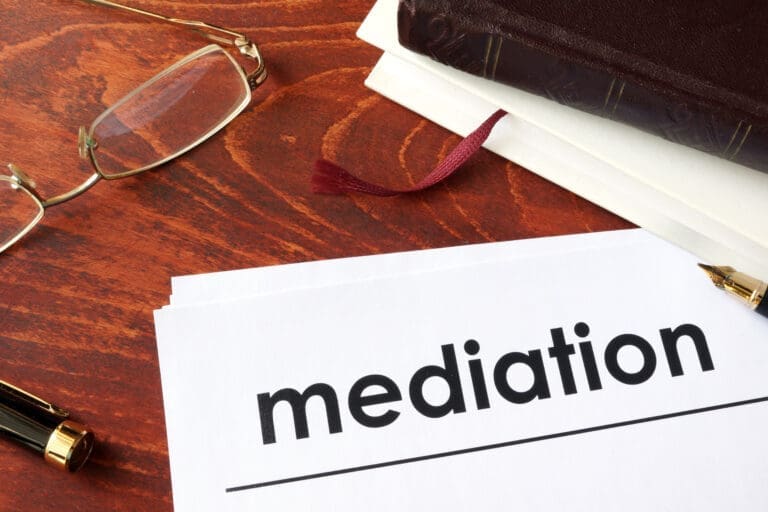
Understanding personal injury law can be daunting, especially when you’re trying to navigate the legal landscape after an accident. Here, we provide a comprehensive guide to the top 20 most frequently asked questions about personal injury cases and lawyers, covering everything from costs to case timelines and legal advice.
1. What Are the Typical Costs Associated with Hiring a Personal Injury Lawyer?
Hiring a abogado de lesiones personales typically involves a contingency fee structure, meaning the lawyer is paid a percentage of the settlement or court award rather than an upfront fee. This percentage can vary, often ranging from 25% to 40%. Some additional costs, like court fees, expert witness fees, and administrative expenses, may also apply. It’s crucial to discuss these details with your lawyer upfront to understand the total costs associated with your case.
2. How Experienced Is a Personal Injury Lawyer in Handling Cases Like Mine?
A personal injury lawyer’s experience is vital in ensuring the best possible outcome for your case. When selecting a lawyer, inquire about their experience with cases similar to yours. An experienced lawyer will understand the nuances of your specific type of case, whether it involves car accidents, slip and falls, or workplace injuries, and will be better equipped to negotiate with insurance companies or argue your case in court.
3. What Is the Expected Timeline for Resolving a Personal Injury Case?
The timeline for resolving a personal injury case can vary significantly based on the case’s complexity, the willingness of parties to settle, and court schedules. Generally, simpler cases can resolve in a few months, while more complex cases involving extensive injuries or disputes may take a year or more. Understanding the typical steps, such as filing claims, discovery, negotiation, and trial preparation, can help manage expectations regarding the timeline.
4. How Can I Determine if I Have a Valid Personal Injury Claim?
Determining the validity of a personal injury claim involves assessing whether another party’s negligence caused your injury. Key factors include proving duty of care, breach of that duty, causation, and damages. Consulting with a personal injury lawyer can help evaluate the circumstances of your case, gather evidence, and determine whether pursuing a claim is in your best interest.
5. What Types of Cases Do Personal Injury Lawyers Usually Handle?
Personal injury lawyers handle a wide range of cases, including but not limited to car accidents, motorcycle accidents, slip and falls, medical malpractice, product liability, and workplace injuries. Each type of case requires a different legal approach, evidence collection, and negotiation strategy. Knowing the specific areas of expertise of your lawyer can ensure they have the necessary experience to handle your case effectively.
6. How Will My Personal Injury Lawyer Keep Me Informed About My Case?
Communication is key in any legal process. A good personal injury lawyer will keep you informed about your case’s progress, including any developments, legal strategies, or settlement offers. Lawyers typically use emails, phone calls, or client portals to provide updates. Establishing a preferred method of communication and frequency of updates with your lawyer is crucial to ensure you stay informed throughout your case.
7. Who at the Law Firm Will Be Responsible for Handling My Personal Injury Case?
Understanding who will handle your case is essential to ensure continuity and expertise. Often, a senior lawyer will oversee the case, while junior associates or paralegals may handle day-to-day tasks. It’s important to clarify which team members will be working on your case, their roles, and how accessible they will be to you for questions or updates.
8. What Is Expected of Me During My Personal Injury Case?
As a client, you play a crucial role in your personal injury case. This may include providing detailed information about the incident, attending medical appointments, and keeping records of all expenses related to your injury. Additionally, you should be prepared to attend depositions or hearings if necessary. Staying proactive and cooperative with your lawyer can significantly impact the success of your case.
9. What Documents Should I Bring to My Initial Consultation with a Personal Injury Lawyer?
Bringing the right documents to your initial consultation can help your lawyer assess your case more effectively. Key documents include medical records, police reports, witness statements, photographs of the accident scene and injuries, insurance information, and any correspondence with insurance companies. These documents provide a comprehensive overview of your case and help your lawyer determine the best course of action.
10. How Is the Value of My Personal Injury Claim Estimated?
The value of a personal injury claim is estimated based on several factors, including medical expenses, lost wages, property damage, pain and suffering, and future medical needs. Lawyers often use past settlements or verdicts for similar cases as benchmarks. An experienced lawyer can provide a more accurate estimate based on the specifics of your case and the local legal landscape.
11. Is It Likely That My Personal Injury Case Will Go to Trial?
Most personal injury cases are settled out of court through negotiations with the insurance company. However, if a fair settlement cannot be reached, or liability is contested, the case may proceed to trial. The likelihood of going to trial depends on the complexity of your case, the amount of evidence available, and the parties’ willingness to negotiate. Your lawyer can provide insight into whether a trial is likely and prepare accordingly.
12. What Are the Next Steps if My Personal Injury Case Does Not Settle?
If your personal injury case does not settle, the next steps typically involve preparing for trial. This process includes gathering additional evidence, preparing witnesses, and developing a strong legal strategy. Your lawyer will file pre-trial motions, attend court hearings, and work towards presenting a compelling case before a judge or jury. Understanding this process can help you prepare mentally and emotionally for the possibility of a trial.
13. How Do Personal Injury Lawyers Negotiate with Insurance Companies?
Negotiating with insurance companies is a critical skill for personal injury lawyers. They leverage their knowledge of the law, evidence, and case precedents to negotiate fair settlements. Lawyers often start with a demand letter outlining the damages and the compensation sought. The negotiation process can involve several back-and-forth offers and requires a strategic approach to ensure that you receive fair compensation.
14. What Common Challenges Might Arise in My Personal Injury Case?
Several challenges may arise in a personal injury case, including proving liability, disputes over the extent of injuries, and delays in the legal process. Other challenges include dealing with uncooperative insurance companies, gathering sufficient evidence, and managing witness availability. An experienced lawyer can anticipate these challenges and develop strategies to overcome them, ensuring your case proceeds smoothly.
15. What Is the Statute of Limitations for Personal Injury Claims in My State?
The statute of limitations for personal injury claims varies by state and is crucial to ensuring you file your claim within the legal timeframe. In general, this period ranges from one to six years, depending on the state and the type of claim. Failing to file within this timeframe can result in losing your right to pursue compensation. Consulting with a lawyer early in the process can help ensure you meet all deadlines.
16. How Can I Minimize the Costs Associated with My Personal Injury Case?
Minimizing the costs associated with a personal injury case involves understanding your lawyer’s fee structure and any additional expenses that may arise. Consider choosing a lawyer who works on a contingency fee basis to avoid upfront costs. Additionally, staying organized, being proactive, and following your lawyer’s advice can help reduce unnecessary expenses, such as court fees and document retrieval costs.
17. What Potential Outcomes Can I Expect from My Personal Injury Case?
The potential outcomes of a personal injury case can vary widely, from full compensation for all damages to a lower settlement offer or even a denial of the claim. Outcomes depend on factors such as the strength of the evidence, the lawyer’s skill in negotiation or trial, and the insurance company’s willingness to settle. Understanding the possible outcomes can help you set realistic expectations and prepare for different scenarios.
18. Is It Advisable to Handle My Personal Injury Claim Without a Lawyer?
Handling a personal injury claim without a lawyer is possible but not advisable in most cases. Personal injury law is complex, and insurance companies often have experienced legal teams working to minimize payouts. A personal injury lawyer can help level the playing field, navigate the legal system, and advocate on your behalf to ensure you receive fair compensation for your injuries.
19. Why Is It Important to Seek Medical Treatment Immediately After an Accident?
Seeking medical treatment immediately after an accident is crucial for your health and personal injury claim. Prompt medical attention ensures that your injuries are properly documented, which is essential for establishing a clear link between the accident and your injuries. Delaying treatment can give insurance companies a reason to dispute your claim, arguing that your injuries were not severe or were unrelated to the accident.
20. Are Settlements from Personal Injury Cases Subject to Taxes?
The taxability of personal injury settlements depends on the nature of the compensation. Generally, settlements for physical injuries or sickness are not taxable. However, portions of the settlement that cover lost wages, emotional distress, or punitive damages may be subject to taxes. Consulting with a tax professional can help you understand the specific tax implications of your settlement and ensure compliance with tax laws.
Attorneys.Media Video Document References
- Is Personal Injury Part of Your Law Practice?
- As an Attorney, How Are You Generating Content for Your Online Presence?
- How Can You Help Potential New Clients Get Their Questions Answered?
- How Do You Differentiate Yourself When Someone Looks Online for Help?
- How Do You Differentiate Yourself as a Criminal Defense Attorney?
- Have You Been Thinking About Video Marketing for Your Law Firm?
- Should Attorneys Use Video Marketing to Attract New Clients?
- What Do Potential Clients See When They Research Your Name Online?
- Cómo puede ayudarle Attorneys.Media








